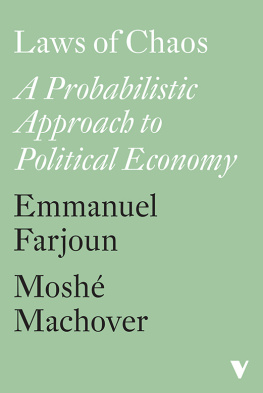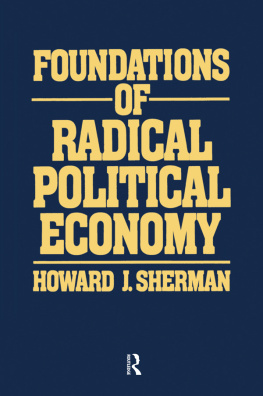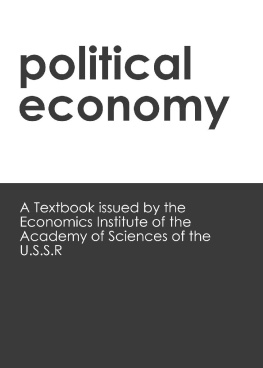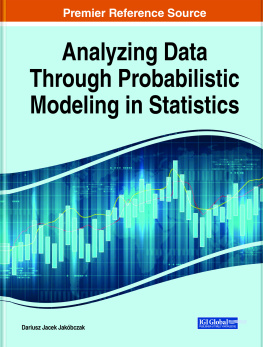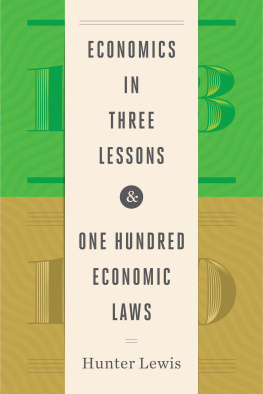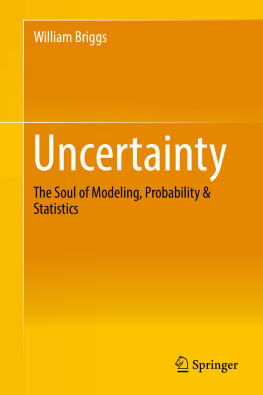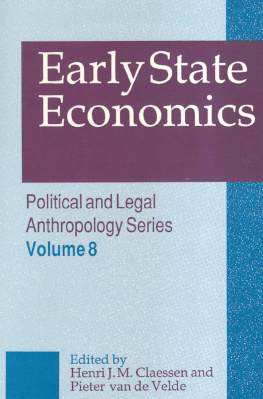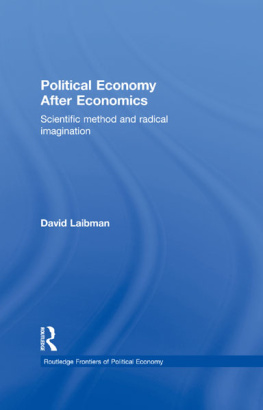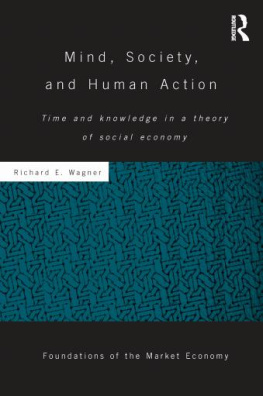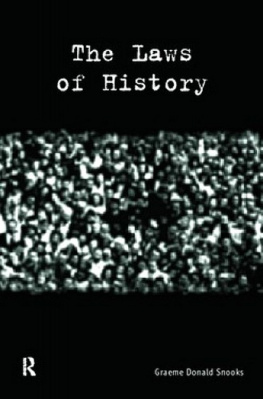Contents

Laws of Chaos
Laws of Chaos
A Probabilistic Approach
to Political Economy
Emmanuel Farjoun
Mosh Machover

This paperback edition published by Verso 2020
First published by Verso 1983
Emmanuel Farjoun and Mosh Machover 1983, 2020
All rights reserved
The moral rights of the authors have been asserted
1 3 5 7 9 10 8 6 4 2
Verso
UK: 6 Meard Street, London W1F 0EG
US: 20 Jay Street, Suite 1010, Brooklyn, NY 11201
versobooks.com
Verso is the imprint of New Left Books
ISBN-13: 978-1-78873-648-0
ISBN-13: 978-1-78873-703-6 (UK EBK)
ISBN-13: 978-1-78873-704-3 (US EBK)
British Library Cataloguing in Publication Data
A catalogue record for this book is available from the British Library
Library of Congress Cataloging-in-Publication Data
A catalog record for this book is available from the Library of Congress
Typeset in English Times The Thetford Press Limited
Printed and bound by CPI Group (UK) Ltd, Croydon CR0 4YY
Contents
Dedicated to
the memory of
Robert H. Langston
No one but man himselfwith his own handsproduces these commodities and determines their prices, except that, here again, something flows from his actions which he does not intend or desire; here again, need, object, and the result of the economic activity of man have come into jarring contradiction.
How does this happen, and what are the black laws which, behind mans back, lead to such strange results of the economic activity of man today?
In the entity which embraces oceans and continents, there is no planning, no consciousness, no regulation, only the blind clash of unknown, unrestrained forces playing a capricious game with the economic destiny of man. Of course, even today, an all-powerful ruler dominates all working men and women: capital. But the form which this sovereignty of capital takes is not despotism but anarchy.
And it is precisely this anarchy which is responsible for the fact that the economy of human society produces results which are mysterious and unpredictable to the people involved. Its anarchy is what makes the economic life of mankind something unknown, alien, uncontrollablethe laws of which we must find in the same manner in which we analyse the phenomena of external nature. Scientific analysis must discover ex post facto that purposefulness and those rules governing human economic life which conscious planfulness did not impose on it beforehand.
Rosa Luxemburg, What is Economics?
This book is an attempt to construct a non-deterministic theoretical framework for the foundations of political economy. It relies on probabilistic and statistical methods, of the kind used in the modern foundations of several other sciences.
Originally, we were motivated to embark on this undertaking by our deep dissatisfaction with the various attempts to resolve or dodge the so-called transformation problem in Marxist political economy. The arguments around this problem over the last hundred years have changed in form, but very little in economic or mathematical essence. We took an interest and became thoroughly familiar with the technicalities of both the input-output approach and the various re-interpretations of Marxs notion of price of production. But we were unhappy with both.
In an essay by the first-named author, it was pointed out how utterly sensitive this method is to the slightest variation in its cornerstone: the hypothesis of a uniform rate of profit. It was further pointed out that this hypothesis is quite unjustified. To a person versed in the mathematical technicalities and aware of the fact that one can often cook the right assumption to get to a desired conclusion, this must seem a very fundamental weakness. Nevertheless, it was equally clear that within a deterministic framework there is no reasonable alternative to the uniformity assumption as a way of theorizing competition. Thus it seemed to the author that in order to dispense with the unjustified uniformity assumption a non-deterministic framework might well be necessary. In such a framework, rates of profit are allowed to move at random according to an inherent probabilistic law.
.
When we examined these rudimentary ideas together, it gradually became clear to us that they form a basis for a far-reaching critical review of the entire foundation of political economy. The assumptions that we criticize and reject are by no means peculiar to the Marxist school, or to those who have taken part in its internal debates; they are shared by the most diverse schools of economic thought, classical and neo-classical alike. Thus, what began for us as a preoccupation with a purely internal problem of Marxian economics was enlarged into a general conception that bears on the foundation of the whole science. The transformation problem has become for us almost a side issue; in this book it is discussed only in .
We believe that what we have to say should be of interest both to Marxists and to those interested in the foundations of economic theory but not particularly familiar with the Marxist tradition and its internal debates.
The idea that probabilistic methods can and should be applied to economics, and that verifiable economic laws can be derived by means of statistical considerations, is far from new. On the conceptual level, it can be traced back to Adam Smith and, more particularly, to Karl Marx, who stressed the essentially statistical nature of economic laws. Actual applications of probabilistic methods to practical economic and financial problems are quite common in the field of insurance and, more recently, in stockbroking. At a more theoretical level, certain schools of mathematical economics have developed and applied the probabilistic approach in econometrics and related fields of economic theory. In this respect, the work of the Austrian economist Josef Steindl is especially noteworthy.
However, when it comes to a mathematical modelling of the central categories of political economysuch as price, profit, value, capital intensityan extremely rigid deterministic approach is invariably taken. In this respect Langston broke new ground: he was acutely aware that the oscillations of prices are an inherent and irreducible part of their very nature in a capitalist economy, and he therefore tried to develop a price theory that would incorporate the it was stressed once again that one must somehow try to reconstruct the very foundations of the political economy of capitalism on concepts that incorporate the insecurity and nondeterministic nature of the market.
The present book is an attempt at such a reconstruction. If it has any claim to novelty, it lies not in the use of probabilistic methods as such, but in their systematic application to the foundations of political economy.
One result of the present work to which we wish to draw particular attention is the theoretical derivation of the law of falling labour-content (or of rising productivity of labour), which we regard as the archetypal law of all capitalist development. We define the labour-content of a given commodity as the total amount of human labour required (directly and indirectly) to produce that commodity. Thus our notion of labour-content is similar, if not completely identical, to what Marx calls value. It must be stressed that this important law cannot even be formulated, let alone explained or derived, in a theory that does not incorporate a notion of labour-content or value. Indeed, one of the central theses of this book is that labour-content, as a basic common measure of all commodities, is an indispensable theoretical concept in political economy. This thesis is diametrically opposed to that advocated by many adherents of the input-output school, particularly Ian Steedman and his followers, who see no role whatsoever for labour-content (or value) in the foundations of economic theory. We are convinced that political economy can advance only if it rejects this hypothesis, which has ruled it since its inception.

